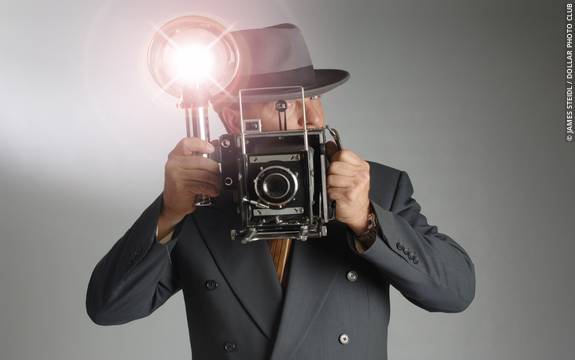Brown & Kulik (1977)
In this Flashbulb Memories Guide:
- What are flashbulb memories?
- Characteristics of flashbulb memories
- What affects them?
- Evaluation of Brown & Kulik's research into flashbulb memories
Where were you on September 11th? Every so-often, an event occurs that stays in the public conscience as an almost photographic memory for the rest of people's lives; JFK's assassination, Princess Diana's car crash, and many more, and we are able to recall unprecedented details about the events.
Brown & Kulik (1977) described such memories as flashbulb memories, and coined the expression "Now Print!" as the process by which such memories seem to be effortlessly created, The key characteristics of flashbulb memories are:
- Vivid
- Significant in the amount of detail they contain
- Long lasting (a person may be able to recall a flashbulb memory for the rest of their lives)
- Often of emotional significance in the person's life; Robinson (1980) used cues with participants in a study and found that the recall rates for emotional word cues were faster than those for non-emotional words, which would suggest that emotion has a role in memory.
What affects flashbulb memories?
The relevance or emotional significance of an event to a person's life would seem to increase its likelyhood of being stored as a 'flashbulb memory'. Brown and Kulik found that 75% of black people asked were able to recall the assassination of Martin Luther King, while just 33% of white people asked could do the same.
Evaluation of flashbulb memories
|
Previous to Brown & Kulik's definition of flashbulb memories, Colgrove (1899) found that most people asked could recall what they were doing and where when US president Abraham Lincoln was assassinated. |
|
|
However, research by Neisser & Harsch (1992) failed to support the efficacy of flashbulb memories. Within 24 hours of the Challenger crash in 1986, they collected the memories of 106 people in a questionnaire asking questions such as where participants were and what they were doing when they heard of the event. About 3 years later, 44 of the original participants were asked to recall the events, but despite giving detailed accounts, |
|
|
Ulric Neisser (1982) criticised the distinguishing of flashbulb memories from 'normal' memories. His explaination of such memories is that they are more of "benchmarks" in our lives, when the course of history and that of our own lives collide; for example, the historic events of September 11th are now part of not only world history but also the history of our own lives, hence why many people can remember the event so vividly. |



























